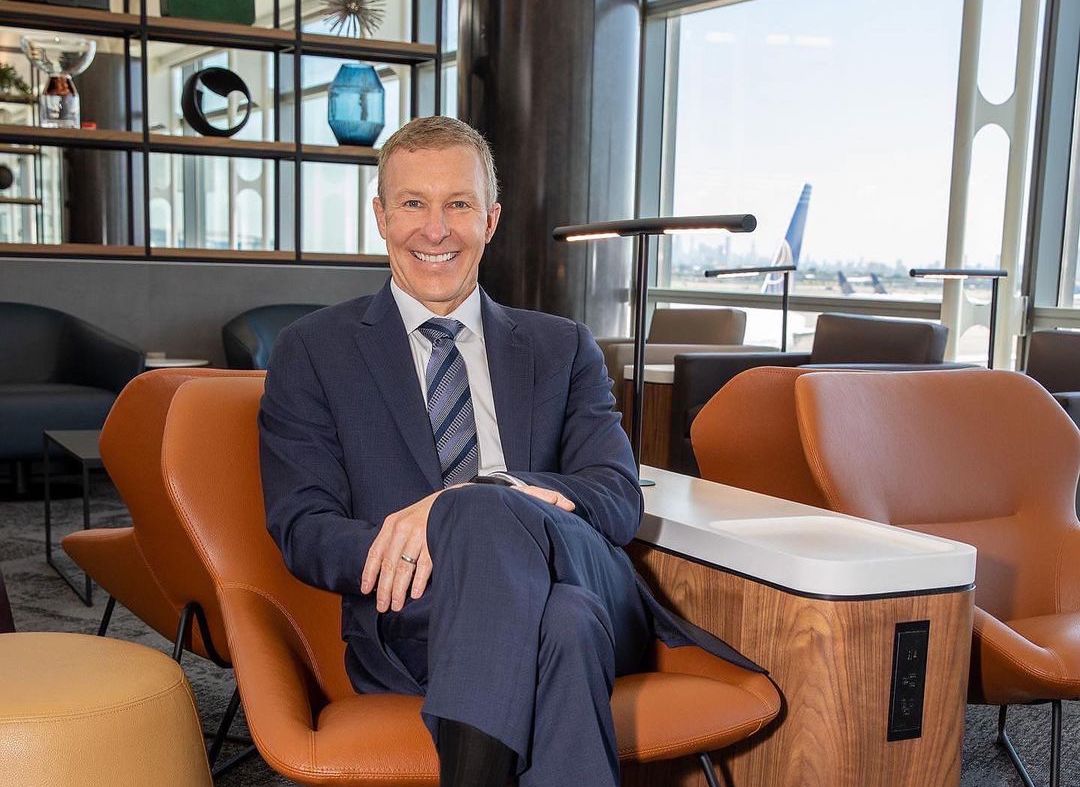
United Airlines is attributing “hybrid work” to what it has called a “permanently higher” demand for travel.
United Airlines Credits “Hybrid Work” For Fundamentally Transforming Air Travel Patterns
Despite fear over inflation and recession, United reported strong third quarter earnings earlier today and has framed its unusually high shoulder season demand in terms of a new trend: the proliferation of “hybrid work.”
Speaking on CNBC, United CEO Scott Kirby explained:
“Hybrid work allows every weekend to be a holiday weekend. What we see in our data is that there are tons of customers who, because they are untethered from the office, can now work remotely for one or two days. And they are taking extra trips. They are coming back on a Tuesday or leaving on a Wednesday or Thursday and they are working one or two days remotely.”
Kirby blames time, not money as holding people back from travel:
“It wasn’t money that constrained people from travel. It was time. And now they have more time flexibility and everyone I am talking to does it…it is the new normal.”
With remote work now a permanent mainstay for many U.S. workers, the ability to clock in from anywhere on the globe has indeed given tremendous flexibility to travel that was not possible prior to the pandemic. While one benefit to being self-employed is that I have always enjoyed this option, I certainly see for many Award Expert clients, family, and friends that this flexibility has certainly led to more flexible travel.
Kirby explained that Tuesday and Wednesday load factors, traditionally the two slowest air travel days of the week, have been 8-10% higher and says “that is people doing these extra trips that they never did before because they now have the flexibility.”
Kirby sees this as a “durable, long-term trend” which offset economic weakness, such that even a recession will not alter United’s bullish predictions for next year.
CONCLUSION
United Airlines is describing a new era of travel defined by a redefined work-life balance fueled by remote work. Strong demand that has outlasted summer and present even on traditional slow travel days suggests a fundamental shift in the way people travel.
Are you now able to travel midweek and more often due to flexible work schedules?
image: @scottkirby / Instagram




Kirby certainly learned a lot from Doug “we’ll never lose money again” Parker when it comes to making predictions. While this increased flexibility that has led to higher demand for now and the immediate future, I thinks it’s very premature to say this is permanent. Recession, whenever it happens, will definitely put a dent in this trend
@William Robert nailed it. Kirby is trying his damnedest to come up with a plausible story for why 2013 won’t suck, but this doesn’t pass the laugh test.
The hybrid leisure traveler is the ultimate discretionary spender. If incomes get cut, leisure travel will be cut even faster. Similarly. companies are already cutting travel back for WFH people, and traditional business travel still has not returned to anything approaching 2019 levels. There’s a strong argument that traditional business travel *never* will return to 2019 levels. Zoom is too convenient and too cheap, and it’s hard to schedule meetings when people are only in the office 2-3 days a week.
Our business travel is certainly higher than ever.
More international, more domestic.
We just realize how vital face to face communication is.
There is no replacement for it.
We’re only a 60 person company, but, we are spending tons more than ever on airplanes and travel.
What Mr Kirby describes is certainly true for me- last week I worked 5 days from 5 different countries, only needing to use 0.5 day of annual leave. Next week I will be working from a beach resort. I am in a job that doesn’t really involve any business travel- before the pandemic I was 99% based in the office, with a very occasional meeting in a nearby location, and I had no desire to work from home.
Having said that, I also agree with the comment that a lot of this spending is discretionary, and I don’t believe that many people are doing what I am doing. A recession would mean that fare levels would only be going in one direction.
Agree with the other comments regarding the temporary nature of this increased travel. It may be remote workers have more flexibility to travel especially for short trips, but Kirby is deluded if he thinks that the ability to travel is due to anything other than the pent up demand and unspent earnings during the pandemic.
Once the saved money runs out or the economy tanks, it’s bye bye high times again.
Also, his picture just makes me dislike him.
So far, I see that business travel, other than conferences heavy on networking, is not coming back very strong, because the clients themselves are working remotely. There has been a pent-up demand for leisure travel, accentuated by the fact that remote working makes it easier to keep working while doing the leisure part. (I had found even before COVID that more wifi connectivity, VPNs and the like made it possible to be about as productive while traveling for work as being in the office. A decade or so earlier, business travel meant a lot of downtime.)
But not only will that pent-up demand for leisure travel be worked through at some point, assuming a recession, I think people are going to stop spending as much on it.
Even if client-facing business travel was to come back fully (it won’t), a lot of people had been travelling for meetings within their own organisations or with other orgs that are closely partnered with them. Whether it’s for HR, accounting, or product development, the majority of that travel is either not coming back at all or getting consolidated over fewer events.
Of course, developing countries may well see an aggregate increase in business travel the long term, but that won’t help UA anytime soon.
His role as a CEO of an airline is to advocate for the company in terms of revenue, growth, and risks to the shareholders and investors. Fed around the world are tightening the monetary policies to control and inflation and liquidity circulation. Hard or soft landing is yet to revealed. Investors should study the risks that are outlined in the financial report for long term investment strategies.